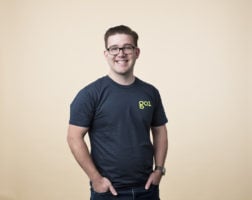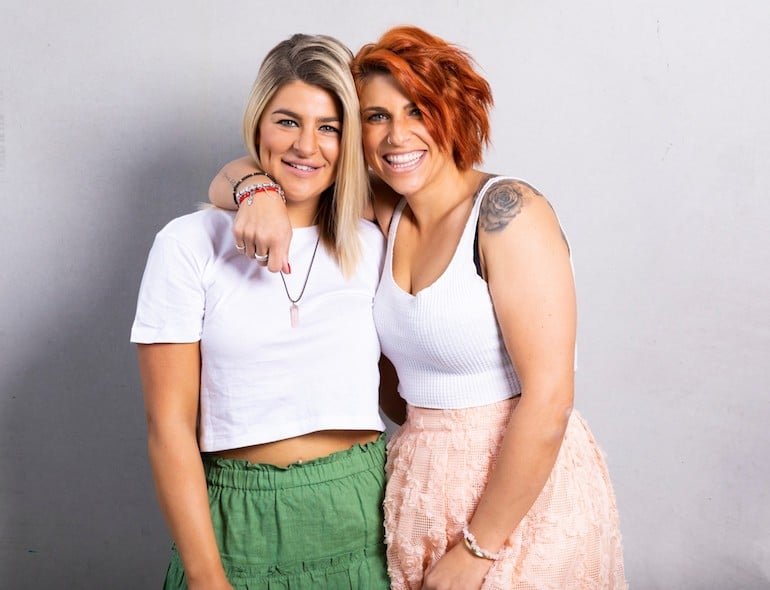Australia needs to continue to expand its innovation and entrepreneurship ecosystem to strengthen our economy, grow our industries and to produce new jobs.
Government has focussed on research endeavours and need to commercialise academic IP.
This presents one path to delivering innovation, but not the only way that universities are supporting Australia’s entrepreneurial eco-system and job creation.
Universities don’t only educate tomorrow’s employees, they are actively championing and supporting our future employers. Australian universities’ role in feeding the entrepreneurial ecosystems has expanded considerably over the past 10 years. A study has shown that Australia’s 41 universities offer nearly 600 subjects related to entrepreneurship.
Developing new core capabilities within universities are those that adapt to complex and uncertain environments, while strengthening social networking skills and self-confidence aka entrepreneurial skills.
Global societal challenges require a diversity of perspectives and approaches to help create solutions for them. Australia has some great wins in this area like the ‘bench to boardroom scientists’ at CSIRO who solved the problem of radio waves bouncing off surfaces that led to WiFi – an innovative technology that revolutionised the world.
Unlike CSIRO’s wireless LAN, it’s not always obvious how new solutions should be deployed to generate the necessary impact. This requires students and researchers who are equipped with the right entrepreneurial skills and attitudes. To do this, universities need to stimulate bottom-up initiatives, combined with a university-wide vision.”
Entrepreneurial skills are ones needed for the new innovation paradigm – to answer the world’s grand challenges in society, the economy and the environment.
The government’s vision
In Minister for Education and Youth, Alan Tudge’s first major speech on higher education he spoke about both Australia’s world-class research and the impact of COVID-19 on the economy and how we can pull out of the pandemic with a more diverse economy.
“Our research output increased over 400% in the last 20 years, but has the impact of our universities?” he said.
Tudge talked of getting our academics to become entrepreneurs, taking their ideas to market: “We want them to be properly rewarded for their breakthroughs and their engagement with business. We are prepared to change IP laws if that is necessary. We know that more innovation activity will lift our nation’s productivity.”
But, we also need to actively engage our students in playing a role – growing ideas and our economy. Mr Tudge’s statement on the Government’s focus on university researchers fails to look at the whole community, and breadth of talent that we have across universities to support this goal.
Spurred on by the 2015 federal National Innovation Science Agenda, the coalition government introduced generous tax incentives for angel and venture capital investors and other financial supports such as entrepreneur visas – currently mute due to COVID-19 and a low volume of applicants – understanding high-growth technology businesses remain key to Australia’s economic growth.
Even the opposition Labor leader, Anthony Albanese, in his 2021 budget reply thinks a ‘Start Up Year’ could help drive innovation and increase links between universities and entrepreneurs.
Australian universities are outstanding in knowledge creation, ranking 9th out of 31 OECD countries for our presence in the top 200 list of world universities.
We’ve had great results with research commercialisation from Cochlear to CSL, and eradicating cervical cancer with Gardasil; universities have a role in delivering innovation in how we think, what we can do, and what direction science can take.
Student entrepreneurship and innovation is another way to bring these type of ideas to market. Universities are investing big in this area now as we want to create employers of the future, not just employees.
At The University of Queensland (UQ), there is UQ Ventures. UNSW Sydney has the Founders Program, UTS Startups and RMIT Activator and many others have similar programs. Alumni of these programs say that both the entrepreneurship programs and the hard and soft skills they learned at university provided them with a platform to launch their ideas to market.
Founder stories
Four Australian alumni from these universities founded startups five years ago that fill gaps in the markets of disability, education, mental wellness and student work experience. They’re paying forward their education so others benefit.

Go1 founder Andrew Barnes
UQ and Y-Combinator alumnus, and cofounder of one of the world’s largest onboarding, professional development platforms GO1, Andrew Barnes, says both taking part in UQ’s accelerator program, ilab, and his education – including a Rhodes scholarship – set him up for success as an entrepreneur. That these experiences and the network gained through ilab set the foundations for GO1.
“In my higher education, I learnt things like understanding from a microeconomic perspective how business is a two sided market place with people who create content on one side and businesses who consume content on the other side,” he said.
“At UQ, I learned some basic economic principles that describe how marketplaces operate so that’s been the lens that I look at the world through. With creating GO1 there’s also a game theory perspective. An understanding of how to approach certain topics.
“But thinking about more general basic skills like how to write, and thinking through the scientific method. Starting a business is a case of experimentation – it’s very similar to the research process. You have a hypothesis, you test and investigate it and understand if it’s a real causal relationship or not.”
GO1 employs 300 people, has 3 million users, 4500 businesses who use their platform and operates in all territories in the world, apart from Antarctica. Two GO1 customers are UTS and UNSW.

Maslow founder Andrew Akib
UTS alumnus and founder of Maslow, Andrew Akib, developed his voice-enabled app for people with paralysis after his friend sustained a traumatic brain injury training for a triathlon.
From a sound and music design background, Akib also didn’t access entrepreneurship courses like Andrew Barnes of GO1. But it was his university education that lay the groundwork for his entrepreneurial mindset.
“Being involved in arts projects taught me the process of entrepreneurship – bands were the original startups!” he said.
“The arts taught me how to bring together people from different disciplines, or instruments, unify on a creative vision, and create an MVP experience with minimal resources in your mum’s basement.”
Maslow employs 10 people, has 1000 users with disabilities registered to use it across Australia and US therapists remotely managing clients in Australia.
UNSW alumnus and founder of The Forage, Pashal Rayan, saw virtual work internship programs as the way forward to helping students, especially foreign students, choose their career paths and land jobs on graduation.

Forage founder Pashal Rayan
“Students have a large anxiety about not really understanding what the real world is like, and, they’re not really given many opportunities to know it either, through school or through their friends or even through some work experiences that are not reflective of what you do as a graduate,” he said.
The NSW Founders program invested in The Forage initially, then later significant investors such as Lightspeed Venture Partners and seed money startup accelerator, Y-Combinator, which allowed the startup to expand into the US.
“In terms of advice, every company is different,” Rayan said.
“The main thing for us is to serve customers and then understand what the biggest problems are for our users. And then, trying to figure out ways to solve that. What’s better? And what’s the main deal? Also understanding the problem really well and trying to find a better solution to what exists. That led us to do more interesting and unique things. I’m quite proud of our businesses for that.
“When our business gets better, it actually helps more people and it makes the world a little bit better in our own little way.”
The Forage employs 50 people and has 1.3 million student users around the globe, including the US, UK, Singapore, and Hong Kong.
Championing young women
RMIT alumni, sisters and founders of Big Sister Experience, Kristz and Bianca Sciessere, are teachers passionate about addressing mental wellbeing and positive body image in girls and young women.
Like GO1’s founder, Kristz immersed herself in entrepreneurship activities while completing her business and teaching degrees. The Big Sister Experience was born from these two passions coming together.
“The Big Sister Experience is a social enterprise that saves the lives of young girls,” she said.
“Through community events and in-school workshops, The Big Sister Experience covers ethical and moral issues and promotes tools and strategies on how to live a happy and healthy life.”
The sisters dove into the RMIT Activator LaunchHUB program, soaking up the discipline and networks the program opened for them.
“LaunchHUB provides a fantastic opportunity to set your foundations up correctly and allow you to be in control as you grow and expand,” Kristz Sciessere said.
“We didn’t expect the amount of connections that we made and the willingness connect us with people who they thought would be beneficial for us to talk to, whether it was in terms of business, our program or personally.”
The Big Sister Experience is still growing rapidly, with 2020 requiring a significant pivot to online. Building out their program online, however, opened new markets and scale for The Big Sister Experience, with exponential uptake further proving the need and opportunity for the business.
The Sciessere sisters employ 14 people and have a growing community of girls, parents, teachers, and schools.
Universities are great places to foster and launch startups. As one student entrepreneur alum said: “bringing together entrepreneurs, innovators and investors to help [students] grow their ideas into a solution for potential commercial opportunity is critical but costly … universities have the capacity to offer those supports because of their alumni network, [industry] partnership and resources”.
Establishing partnerships with larger corporates early in a startup venture can help accelerate startup growth. University is one place that industry and government can access innovative students in the early stages of their startups’ life, ready to enter the workforce. The inverse works too – it’s where industry gets top-tier student interns, which is used by some multinationals to feed their graduate programs.
The job-ready graduate program is supposed to enhance graduate employability particularly in STEMM industries, but what about our job-creating graduates?
An all-faculties approach of taught and practised entrepreneurial thinking could lift and support the federal government’s $900 million National Priorities and Industry Linkage Fund to truly improve employment outcomes and improve our pandemic hit economy – not just in STEMM and for researchers, but for all our students.
Four university programs helping students, staff and alumni build startup businesses
- University of Queensland accelerator program, Ventures ilab.
- UNSW Sydney Founders Program.
- UTS Startups
- RMIT Activator
-
Josepha Dietrich is the research and engagement coordinator, Global Engagement and Entrepreneurship, at The University of Queensland. Contributions by UQ Dr Jessica Gallagher, UNSW David Burt, UTS Murray Hurps & RMIT Matt Salier.




















Trending
Daily startup news and insights, delivered to your inbox.